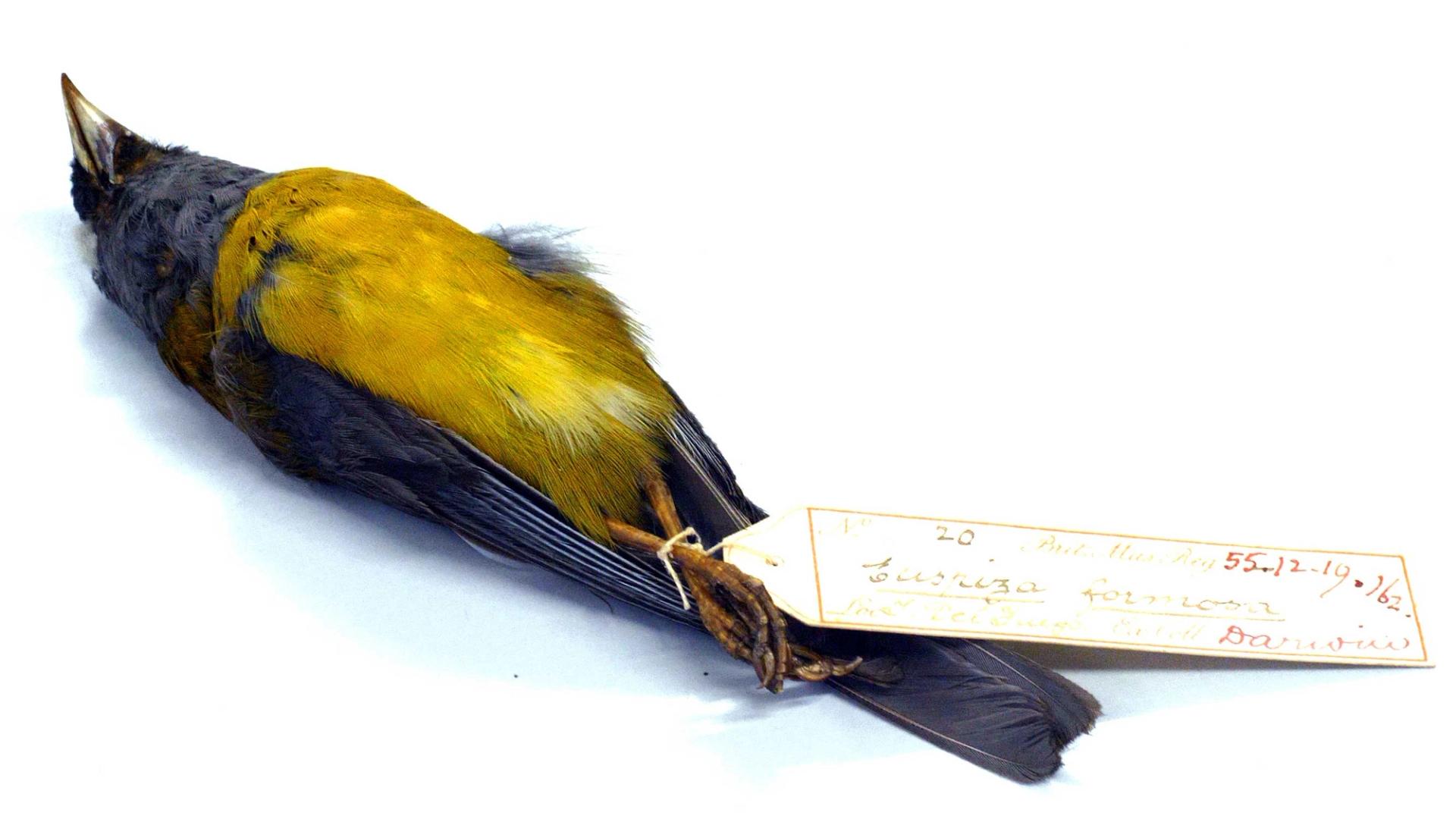The video A Terrible Fiction (2019) begins with “natural” selection, which is to say with images of birds collected by Charles Darwin from the Eastern Pacific expeditions that informed his pioneering work in evolutionary speciation. These birds, now stuffed and itemised, are hidden away in an archive at the National History Museum, in London, to which the artists Larry Achiampong and David Blandy were given rare access for filming—although only the archivist, whose hand is seen at the end of the film, was allowed to make physical contact with the specimens.
The first of four video installations, known collectively as Genetic Automata—which the Wellcome Collection in London has brought together in a special exhibition—is preoccupied with selection and exclusion, from Darwin’s instructor in taxidermy, John Edmonstone, a Black man effaced and anonymised in the historical record (in his letters, Darwin referred to the former slave by race rather than by name), down to the white (or Simpsons-yellow) colour that is the default for faces selected as avatars in computer games or on social media.
The phrase “a terrible fiction” recurs across the other three films in the series—A Lament For Power (2020), Dust To Data (2021) and the premièring _GOD_MODE_ (2023)—and might readily have served as the title for any of them.
Achiampong and Blandy are interested in the biases that have insinuated their way into the studies of evolution, anthropology, genetics and archaeology, lending a veneer of scientific authority to the foundation myths of white supremacy and patriarchy, while permeating the ideologies of modernity along falsely premised divisions of race, class and gender. Who we are, the very construction of our identities, the artists suggest, emerges from a system that is gamed to play favourites—and Achiampong and Blandy use the iconography of video games to suggest a world bounded by parameters that offer choice to some while denying it to others.
So in Dust to Data, the ruins of ancient civilisations are presented as virtual playgrounds, even as the stories about them that have become embedded in archaeological discourse are debunked for their lack of grounding in reality. In A Lament For Power, a computer-generated cityscape is shown being overtaken by an expanding black mass—a symbol both of white racist fears about replacement and of the cell culture taken in 1951 at Johns Hopkins University (without knowledge or consent) from the unremunerated, largely unsung African American Henrietta Lacks and replicated to map the human genome and transform the world (for the profit of white men in white coats). And in _GOD_MODE_, which is named after a consequence-free playing mode in video games, a digital spider, representing the West African shape-shifting trickster god Anansi, crawls unnoticed through server banks—a literal bug in the system—before fancifully weaving its own narrative web to reset the game.

Larry Achiampong and David Blandy, A Terrible Fiction (2019).
Courtesy the artists and Wellcome Collection
The artists themselves have skin in this game—not just because they are both keen online gamers, but also because A Terrible Fiction features their contrasting epidermises in extreme close-up, reducing their racial differences to pure surface. Genetic Automata is a work of dialectic. Several of the films are actually narrated by both artists in a free-associative exchange of ideas—but there is also the dialogue between the tenacious “his story” that these men chronicle, and the irony that they use to subvert its stranglehold on our very way of thinking. The richly convoluted scripts—sometimes dry and witty, sometimes angry and accusatory, always provocative—deploy wordplay and mixed metaphors as weapons to tease apart the contradictions in an oppressive status quo.
Perhaps, though, the greatest irony here is one of setting. Darwin’s Victorian half-cousin Francis Galton, whose long-influential work in biological racism is the starting point of _GOD_MODE_, coined the term “eugenics” and established the first laboratory devoted to its study at University College London, just across the road from this exhibition. There, in a sign that the landscape can eventually change, Galton’s work has, over more than a century, been gradually repudiated. The conversation—of which this series forms a part—continues.
• Genetic Automata, Wellcome Collection, London, until 11 February 2024


